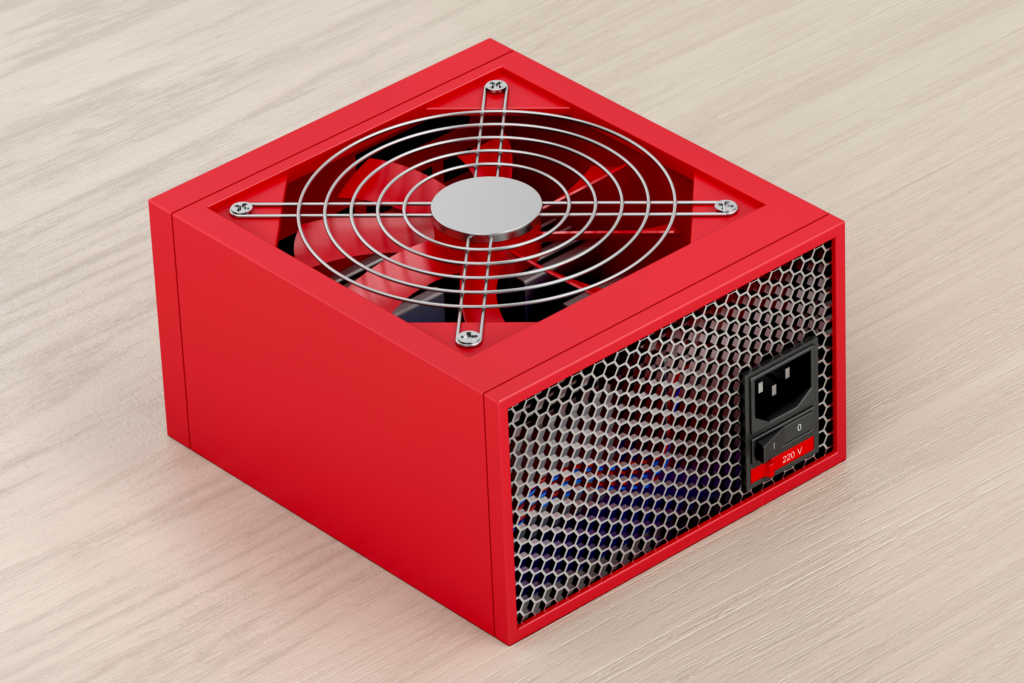Why is My Fridge Buzzing so Loudly? 5 Reasons Why
Your refrigerator uses a few key mechanisms to keep your food cold, and it’s common for it to make noise while doing so. If you’re wondering, “Why is my new fridge making a loud humming noise,” or “How to stop refrigerator from buzzing,” we will answer those questions for you.
Your fridge is buzzing loudly because the power supply requires more power, the fridge is on an uneven surface, it has things on top of it, it’s too close to furniture, it’s making ice, or the compressor is faulty. Troubleshoot these issues to fix a loud, buzzing fridge.
Keep reading for detailed explanations of why your fridge is buzzing so loudly, plus solutions for each potential cause.
Why is my fridge buzzing so loudly?
Refrigerators have many working parts inside them to help keep food cold. These parts often make noise, even if there’s nothing wrong. Why is your fridge buzzing so loudly, and is a noisy fridge dangerous?
Your fridge is buzzing loudly because of the compressor. The compressor fan makes noise as it removes excess heat from the refrigerator. If it’s not the compressor, check that the fridge is on an even surface and that there are no loose objects on top of it. The noise can also come from the ice machine inside.
During the normal operation of the fridge, the compressor circulates refrigerant around the fridge coils to produce a gentle hum.
It is generally soft, like the running of a smooth car engine.
The sound that is of concern, though, is usually a low-pitch, vibrating metal plate-like sound coming from the fridge, unlike a smooth running sound.
This sound may grow in intensity and stop when the fridge door is open or when you hold onto the fridge.
5 reasons there is buzzing or noise coming from your fridge
The buzzing noise from your fridge could be concerning. Refrigerators are designed to make noise, most commonly from the compressor fan inside. However, excess noise or a fridge that buzzes too loudly can be annoying.
Here are 5 reasons why your fridge is buzzing so loudly:
- The power supply requires too much power
- The fridge is on an uneven surface
- The fridge is rattling other furniture or stuff on top of it
- It’s making ice
- The compressor fan turned on to cool the fridge
Your fridge’s power supply requires more power
The power supply in your fridge might require more power than the outlet it’s plugged into is giving it.
Make sure the outlet isn’t faulty, and that your fridge’s power supply does not require more than the average 120 volts you can get from a kitchen wall outlet.
If the voltage from the grid is lower than the manufacturer’s specification for the proper operation of the fridge, you may hear the loud humming sound from the fridge because it’s overworking itself from the lack of power.
You may be able to tell this when the lights dim, or if you have an installed power meter, you should see a low AC voltage reading. You can also measure the AC voltage using a digital meter.
How to fix it:
When you experience a low voltage, switch off the fridge. A poor-quality power supply can destroy your fridge’s compressor.
Plug your fridge into a power protection device like a fridge guard, which monitors the fridge’s power supply in real-time and switches off when outside the recommended values to protect your fridge from damage.
You can use a voltage stabilizer that adjusts the grid supply voltage to the recommended voltage for the proper operation of the fridge.

Your fridge is on an uneven surface
If the fridge is not placed on a level surface, with it resting on 3 of the 4 support legs, you may hear the loud buzzing sound as the compressor starts, accelerates, or decelerates.
An uneven surface can cause the parts in your fridge to not function properly or work harder than necessary. Either of these can cause a loud buzzing sound.
How to fix it:
Check that the fridge’s legs are firmly seated on a flat surface and, if not, make the necessary adjustments to make sure that they are. You can use a leveling tool to check if it’s level.
Some fridges have adjustable legs where you can increase or decrease the length of each. If your fridge does not have adjustable legs, you might need to add a piece of cardboard beneath one or two of the legs to stabilize it.

The fridge is rattling other furniture or stuff on top of it
You may also experience the loud humming sound if there is an object with loose pieces placed on top of it or if the fridge’s body is touching another surface, like a wall or piece of furniture.
In this case, the buzzing sound may be heard when the compressor starts or runs, causing the fridge to touch or shake the nearby furniture.
Are there any loose utensils or fridge accessories that may be loosely placed on the racks? These can cause additional and louder vibrations as the fridge compressor runs.
Hot to fix it:
Check that there are no loose objects placed on the fridge and there is enough separation between the fridge’s body and the surrounding surfaces.
If there are, remove them or make the necessary adjustments in their positioning to allow some spacing between the fridge and nearby objects.
The fridge is making ice
It’s common for fridges, old and new, to cause a ruckus while making ice.
One cause of a buzzing fridge could be the ice maker. The buzzing is often louder in fridges that have an ice maker but aren’t connected to the home’s water line. The water line connected to the fridge usually has its own shut-off switch.
How to fix it:
The buzzing sound may be from water filling the ice maker (if the water line is connected). If the sound is loud, try reducing the water pressure of the water line and check if the humming sound stops.
If your fridge is not connected to the water line, turn off the ice maker to significantly reduce the loudness.

The compressor fan is on and buzzing
The compressor in a fridge is the most common cause of loud buzzing noises.
As refrigerant moves from the expansion device through evaporator coils inside your fridge, it cools the air inside. The compressor will then turn on, emitting a loud buzzing noise. This noise is normal and is not cause for concern.
However, a fridge’s compressor can overwork itself and become louder.
On another note, if your fridge is leaking oil, unplug it immediately and call a repair service.
How to fix it:
A fridge’s compressor should make noise; in fact, it would be concerning if it didn’t. The most common cause for a loud compressor is when a fridge gets too warm internally.
If the fridge is suddenly making too much noise, troubleshoot the compressor by first checking the fridge’s gasket (the rubber lining that seals your fridge closed). A damaged or broken gasket will not insulate your fridge properly, causing the compressor to overwork itself and become louder.
Replace the gasket if it’s broken or damaged.

If you check all the above likely causes and none appears responsible for the humming sound, then consult the manufacturer’s support team
Summary of Why is my fridge buzzing so loudly
The faint hum of the fridge’s compressor is normal, and it should not be a cause for worry.
If, on the other hand, you have a sudden loud buzzing sound, check the fridge is on a level surface.
The loud buzzing sound may also be because of low ac voltage from the grid, or in case your fridge has an ice-maker with no water line connected, switch it off.
If the water line is connected, you may have to lower the water line pressure by adjusting the valve to reduce the buzzing sound.
Let Us Know How We’re Doing!
Did this expertly prepared resource answer your question?
Do you have another question about home maintenance, home improvement projects, home appliance repair, or something else?
Get more information, send in questions and keep the discussion going by contacting the I’ll Just Fix It Myself company customer service team at at 1-800-928-1490 or Email us at [email protected]
